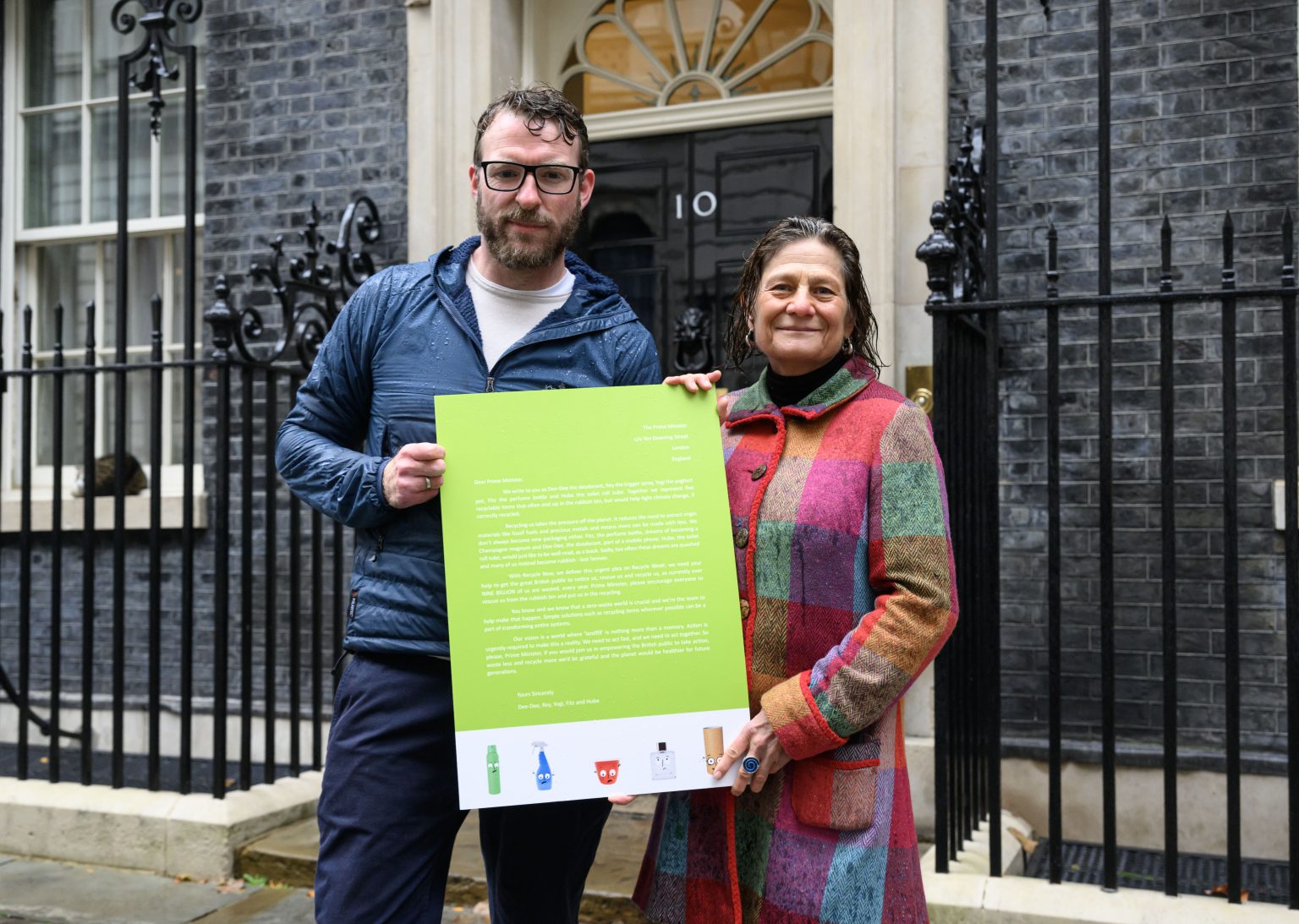Today marks the launch of the UK’s annual Recycle Week, highlighting a significant environmental challenge: households are discarding over nine billion recyclable items each year. With alarming statistics revealing billions of recyclable bottles, aerosols, and packaging are heading to incineration or landfill, the campaign aims to encourage the public to “Rescue Me – Recycle.”
The Statistics
Recent data shows that the most commonly binned items in Britain include an astonishing 7.4 billion yoghurt pots, 845 million cleaning product bottles, 526 million aerosols, and six million perfume bottles. Additionally, toilet roll tubes are frequently thrown away. While nearly 90% of people recycle regularly, almost 80% admit to discarding one or more recyclable items. In 2022, UK households generated approximately 25.7 million tonnes of waste, with only 44.1% being recycled.
Raising Awareness at Downing Street
To raise awareness and rally support for the recycling cause, Recycle Week Ambassador JJ Chalmers, along with WRAP CEO Harriet Lamb, is leading a delegation to 10 Downing Street. They will deliver an open letter to the Prime Minister, urging him and the public to rescue more recyclable items from the waste bin. The letter calls for increased commitment to recycling, highlighting the pressing need for collective action in tackling this environmental crisis.
Engaging Characters and Public Interaction
Joining the Recycle Week team are lively characters such as Dee Dee the deodorant, Rey the plastic trigger spray, Yogi the yoghurt pot, Fitz the perfume bottle, and Hube the toilet roll tube. These life-sized mascots aim to engage the public, delivering a clear message: recycling helps to lessen the environmental impact of the products we consume. Armed with placards, they will visit notable London landmarks to spread awareness and encourage recycling.
Expert Insights
Harriet Lamb emphasises the importance of increasing recycling efforts: “We’re a nation of recyclers, with eight out of ten UK households participating, but there is still much more we can do to rescue items from the main rubbish. By diverting goods like deodorant cans and cleaning bottles away from landfills, we can significantly reduce our climate impact.”
JJ Chalmers adds, “Recycling at home is a straightforward yet impactful way to contribute to climate action. It is crucial to check packaging labels to determine whether items can be recycled. Many household items can be rescued, and it just takes a moment to check.”
Government Commitment
Circular Economy Minister Mary Creagh acknowledges the challenges ahead, stating, “With recycling rates declining and over nine billion recyclable items binned annually, we face a considerable task in achieving a zero-waste society. This year’s Recycle Week calls on everyone to rescue rubbish from the bin and recycle it instead.”
Community Involvement
Throughout Recycle Week, local authorities across England and Northern Ireland are hosting roadshows, competitions, and various social media initiatives. These efforts aim to engage the public and foster a culture of recycling within communities.
Conclusion
Recycling is essential for the UK’s transition to a zero-waste circular economy. By keeping materials in circulation and reducing the need for virgin resources, we can mitigate the environmental impact of our consumption habits.
